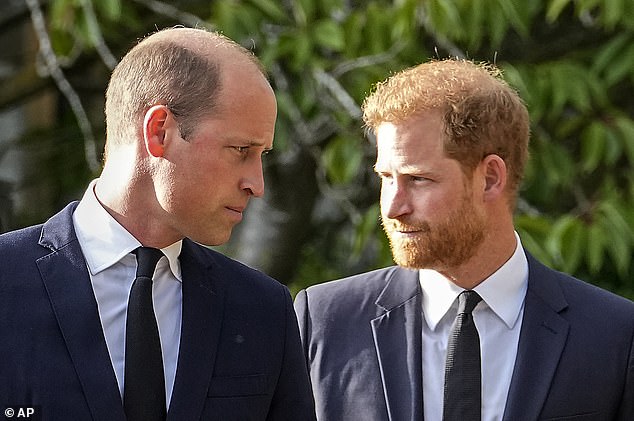Must Read
Harry Put into Dilemma as William Loses Patience with Netflix Over Controversial Crown Episode
Prince William, the Duke of Cambridge, is reportedly frustrated with Netflix's decision to dedicate an entire episode of its fifth series of The Crown to Princess Diana's controversial interview with the BBC's Martin Bashir.
Despite expressing his belief that the interview holds no legitimacy, Prince William, 39, remains deeply irritated by the inclusion of the shocking sit-down in the upcoming series.
In May, he stated that it should never be aired again, and according to a royal source, his stance remains unchanged.
The eldest son of Princess Diana has been openly critical of the 1995 interview, in which his mother famously declared, “There were three of us in this marriage.”
In response to Lord Dyson's report on how the interview was secured, Prince William asserted that it is positive that the BBC fully accepts Lord Dyson's findings.
He accused BBC employees of lying and using fake documents to obtain the interview, making false claims about the royal family, displaying incompetence in investigating complaints, and covering up information from their internal investigation.
The prince believes that the deceitful manner in which the interview was obtained significantly influenced his mother's statements.
Prince Harry, the Duke of Sussex, who recently signed a reported £112m deal with Netflix alongside his wife Meghan Markle, also expressed strong criticism of the circumstances surrounding his mother's interview.
He emphasized the need to protect her legacy, stating, “Our mother lost her life because of this, and nothing has changed.
By protecting her legacy, we protect everyone and uphold the dignity with which she lived her life.”
Harry and Meghan's two-hour tell-all interview with Oprah Winfrey caused shockwaves within the palace.
Mental health was a central topic, with Meghan discussing feeling vilified by the press and unsupported by the royal family.
Her account drew parallels to Princess Diana's experiences.
Meghan's revelation of her suicidal thoughts was particularly alarming, as she admitted, “I just didn't want to be alive anymore.
And that was a very clear and real and frightening constant thought.”
Despite the wishes of both William and Harry for the commercialization of their mother's life to cease, Netflix is proceeding with the controversial episode.
Insiders claim that The Crown's creators view the interview as a pivotal moment in series 5, as it marks the culmination of the stormy marriage between Charles and Diana and sets the stage for the events that defined her final months.
The Crown has a history of delving into aspects of the royal family's history that they would rather leave untouched.
The results of Lord Dyson's inquiry plunged the BBC into one of its biggest crises to date, with the broadcaster acknowledging its clear failings and issuing an apology earlier this year.
However, it seems that this challenging chapter is not yet closed for the royal family, as The Crown's upcoming episode is set to reignite public interest in Princess Diana and her world-famous interview.
In a separate development, Prince Harry and Meghan Markle have become victims of a coordinated hate crime campaign on Twitter, potentially reaching an estimated 17 million users.
According to a report by Twitter analytics provider Bot Sentinel, 83 accounts were responsible for 70 percent of the harassment, with Meghan being the subject of approximately 80 percent of the abusive messages.
Some of the analyzed tweets even contained coded racist language, targeting Meghan's biracial background.
Shockingly, Twitter's algorithm recommended following these hate accounts after viewing just two of them, raising concerns about the platform's handling of such issues.
It is evident that the accounts highlighted in the report are in violation of Twitter's rules regarding platform manipulation, spam, abuse, harassment, and the publication of private information.
The disturbing online campaign against Prince Harry and Meghan Markle further underscores the need for stronger measures to combat hate speech and protect individuals from targeted online abuse.




















